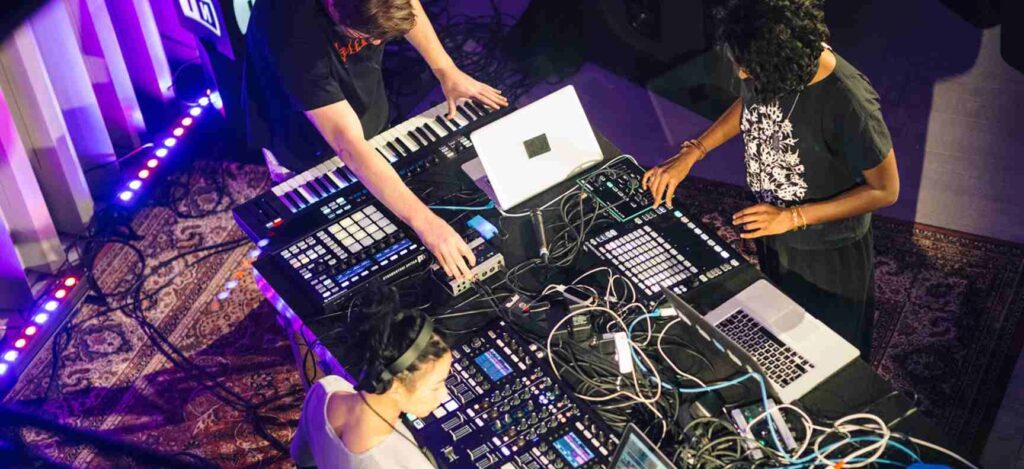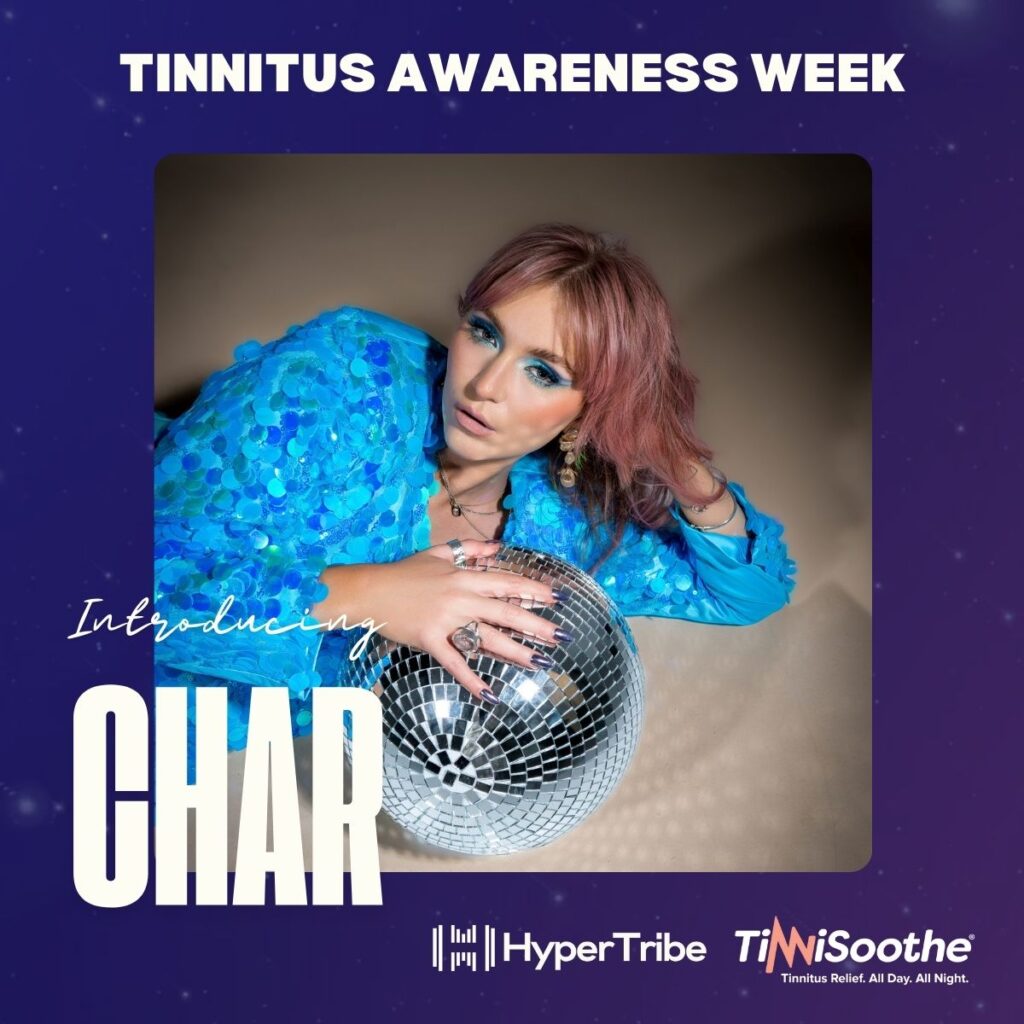The Benefits of Music Collaboration
Expand Your Network
Among the main advantages of music cooperation is the chance to grow your network. Working with other musicians lets you into a whole other realm of contacts and opportunities. Working with many musicians lets you access their fan base and appeal a larger audience. This may raise your music’s profile and maybe attract fresh listeners.
Apart from the possibility for more exposure, working with other artists offers the opportunity to absorb knowledge from their background. Every artist offers their own particular viewpoint and set of abilities; working together can help you to get insightful information. Working with others may widen your horizons and enable you to develop as a musician whether that means acquiring new skills, investigating other genres, or grasping the commercial side of the company.
Establishing a clear process and defining clear objectives from the beginning can help you to maximize your working relationships. This guarantees that everyone is aiming for the same goal and in line. Any team depends on communication, hence be sure to maintain lines of contact open and welcome helpful criticism. This enables a harmonic and efficient working relationship wherein everyone’s thoughts and efforts are appreciated.
Remember, working on music projects is about developing meaningful relationships and supporting a community as much as about producing outstanding music together. Thus, seize the chance to grow your network, absorb knowledge from others, and welcome the force of group projects in your musical path.
Learn from Other Musicians
Working with other artists allows you to pick knowledge from their particular viewpoints and experiences. Working together can help you to acquire important understanding of many musical genres, methods, and approaches. Your musical horizons will be much expanded and you will develop as an artist by means of this knowledge-sharing. Learning from others might also motivate you to investigate other genres or try out alternative sounds, therefore generating interesting creative innovations. Using the pooled knowledge of other artists can help you to improve your abilities and widen your awareness of the music business.
Access to New Ideas and Perspectives
Working with other artists provides access to a great range of fresh ideas and viewpoints. For your own artistic development, this may be very helpful. Working with people from all musical backgrounds and inspirations can help you to expand your horizons and investigate fresh creative ideas. Strategic use of these many concepts and points of view might result in creative and original musical cooperation. It lets you mix many approaches, genres, and styles to get something rather unique.
Finding Collaborators
Online Platforms for Music Collaboration
Online platforms provide a quick and easy approach to interact with artists from all across the globe while working with other musicians. These systems, including Ableton, provide a broad spectrum of tools and capabilities that simplify file sharing, idea sharing, and project team collaboration. These sites let you locate the appropriate partners for your musical activities regardless of your role—that of producer searching for a singer or lyricist looking for a guitarist.
Connecting with musicians with varied skill sets and musical backgrounds is one of the benefits of working on internet platforms for music. This variety might allow you to widen your creative boundaries by bringing new thoughts and viewpoints to your endeavors. Working with artists from several genres or cultures may also provide original and creative musical encounters.
To begin using these sites, just register and begin looking through the accessible artists and projects. To locate partners that fit your musical vision, look for certain instruments, genres, or even a place. Once you have someone you want working with, you may contact them to go over your ideas and objectives.
Online teams depend much on communication, so keep in mind that. Clearly state your objectives, expectations, and timeframes to guarantee seamless operation. Clearly defining a process and separating chores can assist to avoid misinterpretation and maintain everyone in agreement. Check in with your colleagues often; provide helpful criticism; and be receptive to comments as well.
Ultimately, like Ableton, internet music collaboration sites provide a quick and varied means of contacting artists and working on projects together. Using these venues can help you to grow your network, get fresh ideas, and produce original music that challenges limits.
Networking Events and Workshops
One great approach to get in touch with other artists and business people is by going to seminars and networking gatherings. These gatherings provide chances to grow your network and meet possible partners driven by your love of music.

Their experiences can help you to acquire understanding of several musical genres and approaches. Workshops and networking gatherings also often include guest speakers who may provide insightful analysis and direction on many facets of the music business.
Joining Music Communities
One excellent approach to network expansion and meet like-minded artists is by combining music communities. These neighborhoods provide chances to meet possible partners who are as passionate about music and a stage for cooperation. Joining a music community allows you to access a pool of gifted people with varied backgrounds and abilities, therefore fostering a rich atmosphere for musical production and invention. Music communities can assist you locate the ideal partner for your project whether your needs call for a singer, producer, or lyricist.
Apart from networking, music groups provide priceless tools and assistance in addition. Their events, seminars, and workshops on many facets of music creation and cooperation are somewhat frequent. These gatherings allow you to get knowledge on several music composing processes and approaches as well as study from business specialists. Furthermore, music communities can have online discussion boards or forums where one may ask questions, get guidance, and distribute their work to other artists.
One should actively engage and help a music community when one joins it. Talk, provide comments on others’ work, and, where at all feasible, contribute your experience. Through helpful criticism and teamwork, actively contributing not only strengthens connections and increases exposure but also improves your music composing skills.
All things considered, a great first step in your musical cooperation is joining music communities. It lets you network like-minded people, get tools and help, and locate possible partners for your initiatives on music creation. Use these groups to grow your network, pick knowledge from others, and improve your creative process.
Effective Communication in Music Collaboration
Setting Clear Goals and Expectations
Clearly defined objectives and expectations from the beginning are very vital while working on a musical production. This guarantees that everyone engaged is in line and aiming for a shared goal. Clear communication is essential to avoiding misconceptions and later conflict.
These are some crucial things to keep in mind when establishing expectations and objectives in a music cooperation:
- Specify the goals of the teamwork. Clearly state the goals you want the cooperation to produce. Whether the project is developing a new song, working on an album, or investigating other musical genres, a clear goal will lead the effort.
- Create reasonable deadlines and timetables at every level of the cooperation. This guarantees that development proceeds promptly and enables everyone to be responsible.
- Clearly state the roles and duties of every team member. This covers chores like arranging, recording, mixing, mastering, composing, Clearly defining responsibilities guarantees that everyone understands their expectations.
Establishing a Workflow
Once you have selected appropriate partners for your musical project, it is crucial to create a process guaranteeing effective development and seamless communication. Clear process in place can help you keep on track and prevent misinterpretation as cooperation calls for structure and collaboration.
These are some important actions to think about when developing a workflow:
- Clearly specify the duties and functions that every team member plays. This will enable everyone to efficiently participate to the project and grasp their responsibilities.
- Create deadlines and milestones to keep the project under forward motion. This will guarantee that improvement is occurring and assist you keep concentrated.
- Stay in touch with your colleagues with communication technologies include project management software, chat applications, or video conference systems. These technologies may help with real-time communication and file and idea sharing ease.
- Plan frequent meetings with your associates to go over the development of the project, handle any difficulties, and provide updates. This will guarantee that everyone is in agreement and assist to preserve honest channels of contact.
- Record significant choices and adjustments made throughout the cooperative process in your documentation. This material might be a point of reference and assist prevent later on misunderstandings or conflict.
Establishing a process including these stages can help you build a cooperative atmosphere encouraging innovation and output. Recall that good music cooperation depends mostly on efficient organization and communication.
Giving and Receiving Constructive Feedback
When working with other musicians, it is important to appreciate every member’s contribution. The development of your joint work depends much on constructive comments. It gives you chances for learning and growth as well as helps you to spot areas that want improvement.
Actively listening to and weighing the comments of your colleagues will help you to get insightful analysis and viewpoints that can improve the general quality of your job. Furthermore, acknowledging the abilities and knowledge of every team member could result in a more harmonic and effective cooperation.
Legal Considerations in Music Collaboration
Understanding Copyright and Ownership
Clearly understanding copyright and ownership is very vital while working on musical productions. A legal protection called copyright gives the author of an original work, like a song, exclusive rights. It guarantees the producer their right to control the use, reproduction, and distribution of their work. Legal rights and obligations connected with a piece of music constitute ownership. It decides who has the power to decide on the song’s licensing, royalties, and income sharing among other things.
Establishing copyright and ownership agreements at the outset of a cooperation helps to prevent any disputes or misinterpretation. These contracts specify the distribution of the rights and earnings among the associates. They also handle questions like composition credits, publication rights, and any other conflicts.
Regarding copyright and ownership in musical cooperation, here are some salient features to give thought:
- Register your music with a copyright office to provide legal evidence of ownership and protect your intellectual property.
- Create a formal agreement outlining every collaborator’s rights, obligations, and pay scale.
- Royalties and income sharing: Based on variables like contribution amount and ownership %, ascertain how royalties and income will be distributed among the partners.
Creating Collaboration Agreements
Establishing clear rules and expectations is very essential when starting a music project to guarantee a successful and seamless cooperation. Clearly defining the rights, obligations, and ownership of the joint effort depends much on cooperation agreements.
These agreements provide a legal structure safeguarding the interests of every engaged party. These important factors should guide the development of cooperation agreements:
- Clearly specify the objectives of the cooperation as well as their scope. This covers defining the kind of project, the duties of every partner, and the completion date.
- Specify ownership and copyright: Early on in the agreement, tackle ownership and copyright issues. Indicate how copyright will be credited and how the contributors will share ownership of the joint effort.
- If the cooperation calls for possible income, it is crucial to decide how the money will be distributed. One may do this by means of a percentage-based approach or a set agreement.
- Add termination terms to the agreement to safeguard all the participants should the cooperation have to be ended. These sections should specify the terms under which the cooperation could be ended and the procedure for settling any conflicts.
Recall, a good basis for a successful cooperation is given by collaboration agreements. Clearly clarifying expectations, ownership, and income sharing helps you to prevent misunderstandings and disputes thus enabling you to concentrate on producing excellent music together.
Royalties and Revenue Sharing
Regarding musical cooperation, knowledge of royalties and income sharing is very essential. Operations connected to the commercialization and distribution of your joint effort must be well specified. This guarantees fair compensation for all those engaged for their efforts. Establishing a cooperation agreement detailing the distribution of royalties and income can help one approach this.
This agreement should outline how money from performances, streaming, and sales will be split as well as the royalties each collaborator will get. Establishing these rules early on helps you to guarantee a fair sharing of income and help to prevent any disagreements.
Collaborative Songwriting Techniques
Brainstorming and Idea Generation
In music cooperation, there are various efficient approaches you may use for brainstorming and idea generating. One strategy is to get your associates in a creative environment free from constraints where everyone may openly offer their thoughts. This promotes an open and cooperative atmosphere where brand creation may bloom.

Using visual tools like mind maps or mood boards helps another approach spark fresh thoughts and boost creativity. These instruments will let you and your partners see ideas and explore many musical paths. Setting a specific goal or subject for your brainstorming session can also assist to guarantee everyone is in agreement and concentrate the creative energy. These approaches can help you improve the growth of your brand and produce original music appealing to your listeners.
Melody and Lyric Writing
Melody and lyric composition call for a variety of approaches to produce interesting and unforgettable tunes. These tactics are some things to give thought:
- Writing melodies and lyrics requires one to establish an emotional connection with your audience, which is rather crucial. Choose songs and lyrics that really speak to listeners and arouse certain feelings.
- Tell a story with your songs and melodies. Share a narrative that transports the audience on a trip and hooks them. Create a picture in their thoughts with rich images and evocative words.
- Try many rhyme systems and rhythmic patterns to give your songs some variation and catchiness. Experiment with the rhymes’ location and the song’s lyric flow.
Arranging and Production
Important elements of music cooperation include production and arrangement. Arranging is the arrangement and organization of the many musical components of a song—that is, the harmonies, dynamics, instruments, etc. It is the process of choosing the performance or playing direction for every component of the music. Conversely, production emphasizes the technical elements of song recording, mixing, and mastering to get the intended sound quality.
Musicians cooperate to produce a harmonic and balanced arrangement that accentuates the concept and style of the song at the arranging stage. This might include trying out many chord progressions, varying instrument combinations, and striking the ideal mix between several melodic parts.
Colleagues record and edit the sound using tools and equipment throughout the manufacturing process. Their efforts center on reaching the song’s intended tone, texture, and general aural character. This covers chores include fine-tuning the mix, adding effects, and varying the degrees of every instrument.
Throughout the organizing and manufacturing process, good communication is very vital. To guarantee that everyone is on the same page, colleagues must precisely express their thoughts, tastes, and recommendations. One may do this with written notes, spoken conversations, or even visual assistance such diagrams or drawings.
Additionally very helpful for the organizing and manufacturing process are cooperative tools and systems. These instruments let partners work on the same project concurrently, make real-time changes, and provide comments to one another. They may also assist with managing the many tracks, files, and song versions.
All things considered, music cooperation depends critically on organization and production. They call for technical knowledge, inventiveness, and good communication. Working together in these domains allows musicians to create professionally produced, well-structured tunes highlighting their skills and inventiveness.
FAQs
How does collaboration work in music?
Collaboration in music is the arrangement of two or more artists working on a musical production. Different phases of the creative process might provide opportunity for cooperative projects. Among the most important creative inspirations behind music nowadays is this one.
How does collaboration help artists?
Working with artists from all backgrounds might spark new ideas and fresh methods. By exposing oneself to other media or approaches, artists are forced to go outside their comfort zones, therefore enhancing their creative process.
Why is music important in our life?
Playing or listening to music is a terrific way to keep your brain active all through the aging process. It works your brain completely. Studies have shown that listening to music helps lower blood pressure, anxiety, and discomfort as well as enhance memory, mood, mental alertness, and sleep quality.
Conclusion
Collaborative songwriting is a powerful technique that allows musicians to combine their talents and create something truly unique. By working together, artists can draw on each other’s strengths and come up with ideas that they may not have thought of on their own. Whether it’s brainstorming lyrics, experimenting with melodies, or arranging instrumentals, collaboration can lead to incredible results.
If you’re looking to start a career in music, learning how to collaborate effectively is essential. At HyperTribe Ltd, we understand the importance of collaboration in the music industry. Our blog is dedicated to providing tips and tricks on how to access the music industry for musicians. We regularly publish articles that cover various aspects of the industry, including interviews with professionals and insights from our founder, Kimmy Dickson. Visit our website to learn more and start your journey towards a successful music career. Join membership.



